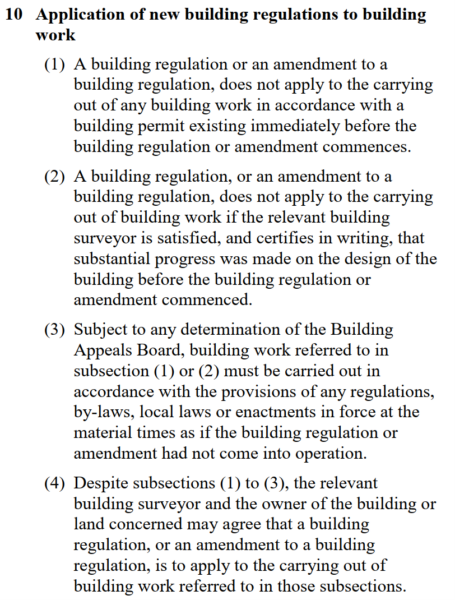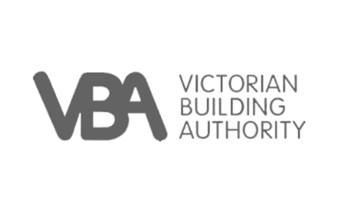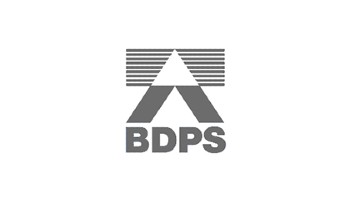Understanding NCC 2022
The 1st May 2023 marks the adoption of National Construction Code (NCC) 2022 by the states and territories.
What does it mean?
All new Building permits and construction must comply with this new code, unless exempt under Section 10 of the Building Act 1993.
Section 10 of the Building Act is at the discretion of the Relevant Building Surveyor issuing the Building Permit and as per the extract below from the Building Act 1993, Section 10, Sub clause (2), an amendment to a Building regulation does not apply to the carrying out of Building Work if the Relevant Building Surveyor is satisfied and certifies in writing, that substantial progress was made on the design of the Building before the Building amendment commenced.

Key Changes
The Australian Building Codes Board (ABCB), on behalf of the government and each state and territory is responsible for producing and maintaining the NCC, and in their words “the NCC 2022 includes some of the biggest changes to the National Construction Code since the Building Codes of Australia and the Plumbing Code of Australia were combined in 2011”.
Some key changes adopted from 1st May 2023, as detailed by the ABCB include:
- New structure, layout and referencing system
- New housing provisions standard
- Early childhood centres
- Fire safety of external walls
- Waterproofing
- Weatherproofing
- Falls to floor waste
- Number of exits
- Quantification of Performance
- Plumbing
- Referenced Standards.
Some major changes in the NCC 2022 are subject to be released 1st May 2024, including:
- Liveable housing
- Energy efficiency and condensation mitigation
- Lead-free plumbing products.
Why has the NCC been updated?
The National Construction Code is updated every 3 years, based on industry research, public feedback and policy directions from government to the Australian Building Codes Board between publishing cycles. The adoption of this version was extended to 2023 as Building Ministers recognized the effects of COVID-19 and impacts it had on the building industry.
Who does the update affect?
This affects anybody who is involved in work that requires a Building Permit. Some main stakeholders may be but are not limited to:
- The Relevant Building Surveyor who issues the Building Permit and inspects the building work for compliance
- The Builder in charge of constructing the new home/extension/works as per contract
- Designers and Draftspersons engaged to design the plans
- Independent Quality Assurance inspection services.
What does it mean for Manse Group?
We live for codes and standards. Our team of Assessors and Building Consultants have been familiarising themselves with the changes to the building legislation in the lead up to the implementation. We are all keen learners and strive to keep up to date with new and improved industry codes, standards, products and methods of construction.
We regularly attend seminars and webinars held by the Victorian Building Authority, Master Builder Association of Victoria and other organisations that address industry changes and new provisions.
Challenges with the new NCC
Getting used to new things can be difficult but the objective is for the overall improvement of the industry. As with every new adoption of the National Construction Code, there will be some overlap over the coming year, where both the old and new NCC will be applicable, depending on the situation and the Building Surveyor’s determination.
While we are committed to ensuring our team of Assessors and Building Consultants understand and can apply the code accordingly, we recognise that not everyone has the time, resources or passion to learn the changes. We will always remain diligent, producing facts-based reports and strive to ensure our clients’ homes are built to the required standard.
We strive to ensure your new home is built in accordance with Contract Documentation, National Construction Code, Victorian Building Authority Standards and Tolerances and relevant Australian Standards. Contact our friendly team to discuss your build today.









